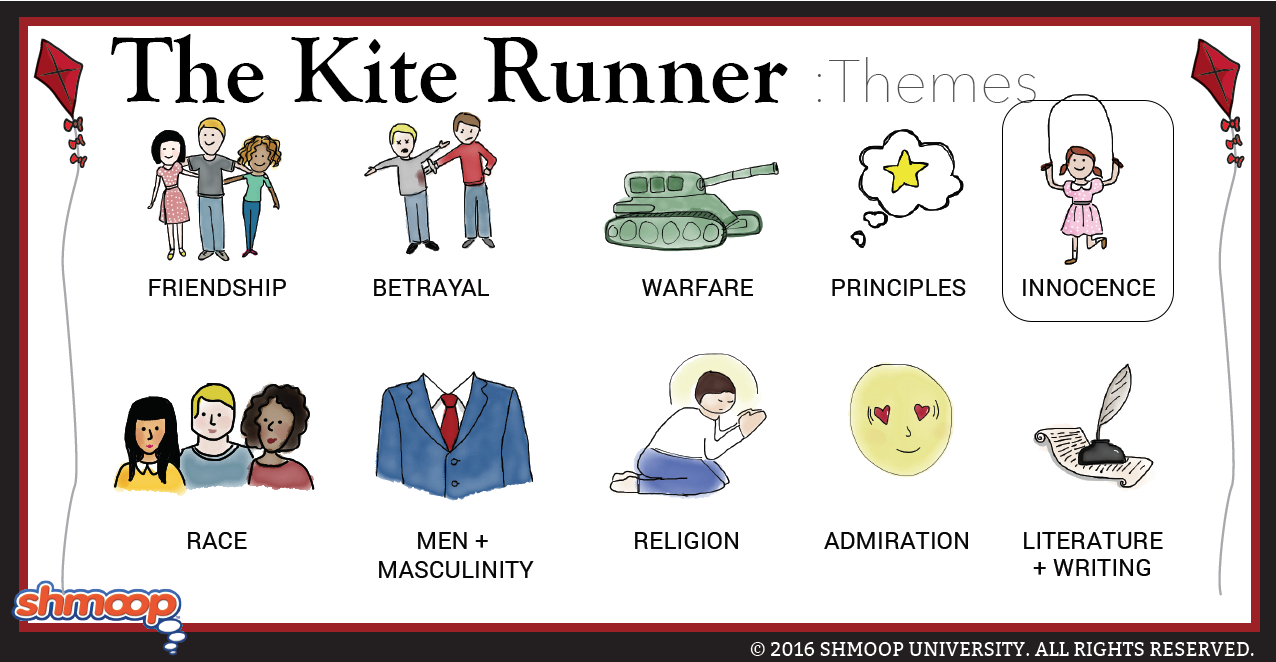 (Click the themes infographic to download.)
(Click the themes infographic to download.)
Here's a very basic reduction of The Kite Runner's main plot and sub-plots: people lose their innocence and try to regain it. In telling this story, Hosseini asks some major questions: Can we ever regain our innocence? Can we redeem ourselves and others? Hosseini also draws a parallel between the stories of individuals and the story of Afghanistan as a country. So, in a way, these same questions apply to a war-torn region and people. As novelists like to do, Hosseini throws in some complications. Some characters seem innocent no matter what. Others are fairly evil and could probably kill a cute little butterfly just by looking at it. We wonder, then, if Hosseini's rubric of redemption applies to everyone or just his characters caught between good and evil.
Questions About Innocence
- The character Soraya presents a fairly complex example of lost innocence. She moves in with an Afghan man while in Virginia. Then, in a dramatic episode, her father "rescues" her from her boyfriend. Now, most Afghan men won't date or marry Soraya because she's been with another man. This doesn't bother Amir, however, and he promptly marries her. Was Soraya's innocence ever really lost? How does one lose one's innocence in The Kite Runner?
- Compare the descriptions of war-torn Kabul and the descriptions of Hassan after Assef rapes him. How does Hosseini draw parallels between these two tragedies?
- Assef describes his participation in the massacre of Hazaras at Mazar-i-Sharif: "You don't know the meaning of the word 'liberating' until you've done that, stood in a roomful of targets, let the bullets fly, free of guilt and remorse, knowing you are virtuous, good, and decent" (22.24). Does a character like Assef even choose between good and evil? Could Assef be innocent in ways Amir is not?
- How does the character of Hassan remain pure and good even through tragedy and war? Does Hassan just have some sort of basic goodness? Does Hosseini, through Hassan and Ali, reclaim physical characteristics (the harelip, the limp) literature has traditionally associated with evil or weakness?